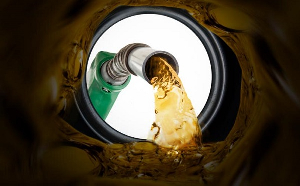 Cedi’s appreciation supporting fuel sector
Cedi’s appreciation supporting fuel sector
The country’s fuel import sector is seeing signs of stability following a significant improvement in foreign exchange (FX) supply and operational reforms, with Bulk Oil Distribution Companies (BDCs) reporting over US$1 billion in FX inflows in the first half of 2025 alone.
The recent forex support stems from closer coordination between the Bank of Ghana (BoG) and industry players. In addition to the central bank’s biweekly FX auctions of US$20 million, amounting to US$120 million in the first quarter, BDCs have secured over US$800 million through direct bank support.
This combined liquidity has helped absorb shocks from the currency’s rapid appreciation and geopolitical uncertainty.
“For six months, we’ve had more than US$800 million supplied through our banks, plus the biweekly auction amounts,” Dr. Patrick Kwaku Ofori, Chief Executive Officer of the Ghana Chamber of Bulk Oil Distributors (CBOD), said in an exclusive interview with the Business and Financial Times.
The sector’s total monthly FX requirement stands at about US$400 million, or US$4.8 billion annually. While the Bank of Ghana’s (BoG) monthly auction covers only 10 per cent of that demand, the additional bilateral support has improved predictability and reduced pricing distortions at the pump.
This forex injection comes amid broader macroeconomic support. The BoG’s foreign reserves rose to US$10.67 billion in April 2025, from US$10.17 billion in March, buoyed by higher gold exports and a crackdown on illegal gold smuggling.
The Ghanaian cedi appreciated sharply between January and June, strengthening from GH¢15.30 to GH¢10.31 per dollar. While such shifts exposed BDCs with long FX hedge positions to losses, industry executives say the blended pricing model, combining forward contracts and spot purchases, helped limit exposure.
“We only hedged around 15 per cent of our FX needs. With 50 per cent met on spot and another 20-25 per cent through short-term forward deals, our average cost was cushioned,” Dr. Ofori said. “That clarity in the exchange rate for six straight weeks gave us confidence in pricing.”
The improved FX position has also helped dispel public suspicion that BDCs exploit exchange rate fluctuations to inflate pump prices. “This period has allowed us to prove that when the dollar is at GH¢10.3, we don’t price at GH¢15,” the executive said. “There’s no room for political rhetoric anymore. Prices reflect real input costs.”
Meanwhile, operational disruptions that previously led to high demurrage costs and charges for delayed vessel unloading are being addressed. About 80 per cent of imported fuel passes through a single port facility, where congestion causes delays and financial losses.
CBOD estimates that from January to June, the industry paid over US$44 million in demurrage, translating to GH¢0.47 to GH¢0.60 per litre added to fuel prices at the pump. In contrast, Kenya’s total demurrage bill for all of 2024 was under US$1 million.
Cheque Fraud EXPOSED: How it works and how to stay safe
